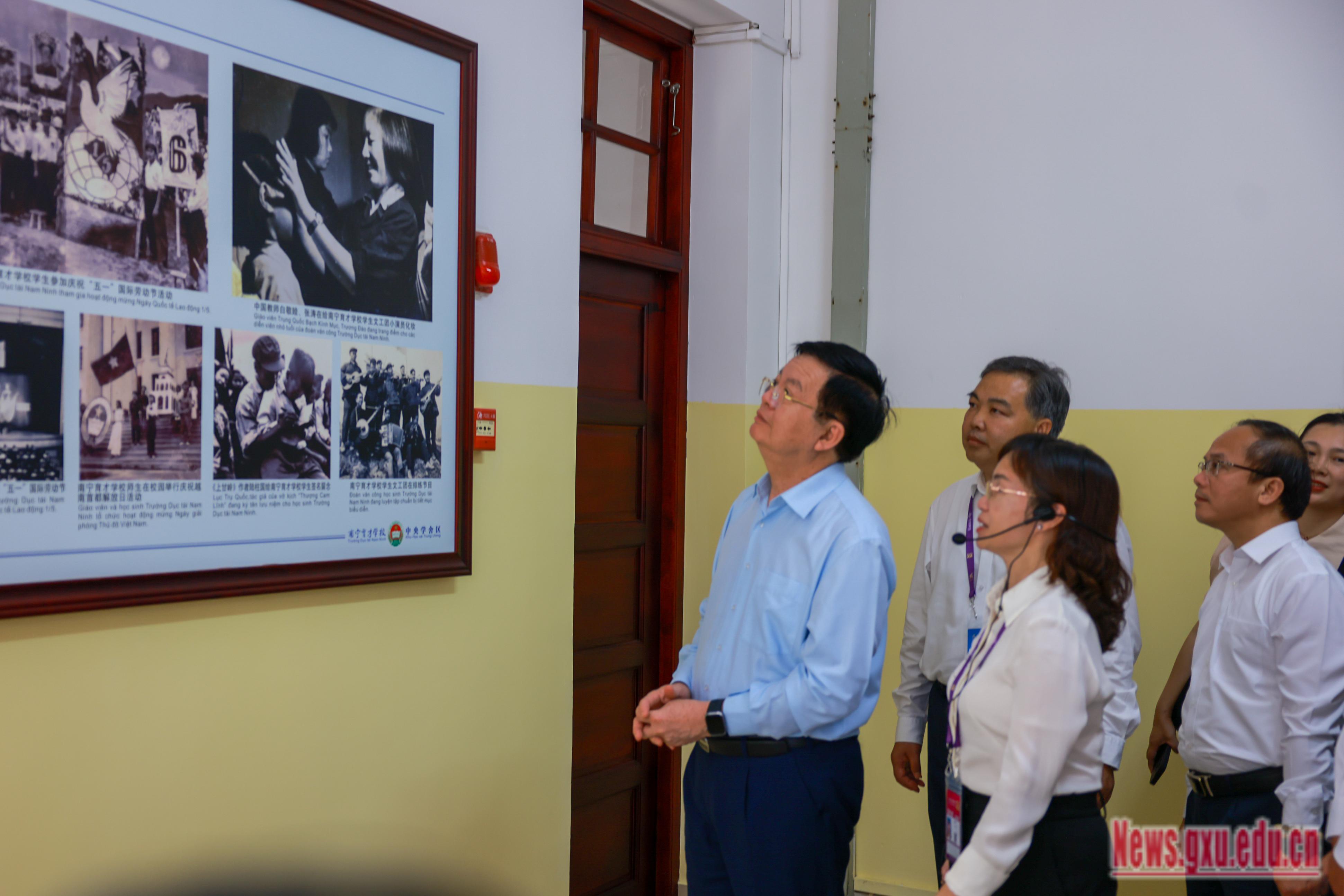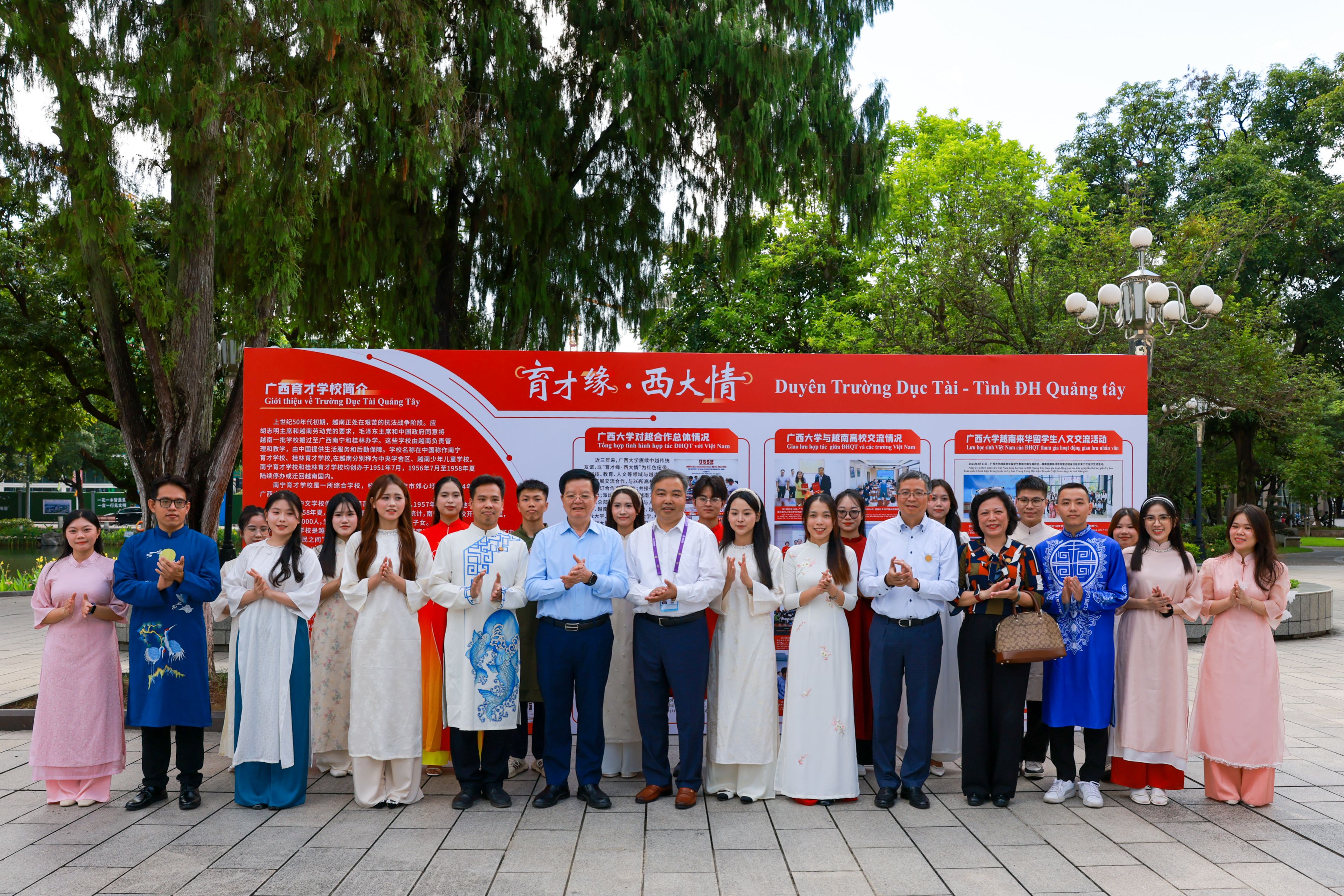On September 17, Deputy Prime Minister of Viet Nam Mai Van Chinh, who is in attendance at the 22nd China-ASEAN Expo and the 22nd China-ASEAN Business and Investment Summit, visited Guangxi University and toured the former site of the original Nanning Yucai School (Vietnamese Central School Zone). Xiao Jianzhuang, Vice President of Guangxi University, accompanied the visit.

At GXU’s Grand Hall (formerly the teaching building of Nanning Yucai School), Mai Van Chinh and his delegation listened to an introduction about the history of Nanning Yucai School, viewed a photo exhibition titled “Bond by Yucai, Affection of GXU”, and learned about the GXU’s efforts to carry forward the traditional China-Vietnam friendship, actively promote exchanges and cooperation with Vietnamese universities, and the training of Vietnamese international students at GXU. Mai Van Chinh stated that Guangxi University was rebuilt on the former site of Nanning Yucai School, which creates a unique historical connection between Guangxi University and Vietnamese universities. He expressed hope that more Vietnamese universities would expand exchanges and cooperation with Guangxi University in the future and looked forward to Guangxi University’s development into a world-class institution .
Mai Van Chinh also warmly met with representatives of Vietnamese students studying at Guangxi University, encouraging them to study diligently and contribute to their homeland and China-Vietnam friendship after graduation.

Nanning Yucai School was founded in the early 1950s at the request of President Ho Chi Minh and with the approval and support of Chairman Mao Zedong, which allowed Vietnam to set up a school in Guangxi. The school was established in 1951 in Jiudongpo, Hede Village, Xinxu Town, Xixiangtang District of Nanning, and was relocated to the current site of Guangxi University in June 1954. In the summer of 1958, the students and faculty returned to Vietnam, and the school was formally closed. Over its years of operation, Nanning Yucai School cultivated nearly 7,000 Vietnamese students, many of whom continued their studies after returning to Vietnam and became key figures in Vietnam’s revolution and socialist development. Nanning Yucai School witnessed the profound “comrades plus brothers” friendship between the Parties and peoples of China and Vietnam, and represents a cherished chapter in the history of China-Vietnam relations .
 Home
>
News & Events
>
News
Home
>
News & Events
>
News
 Home
>
News & Events
>
News
Home
>
News & Events
>
News




